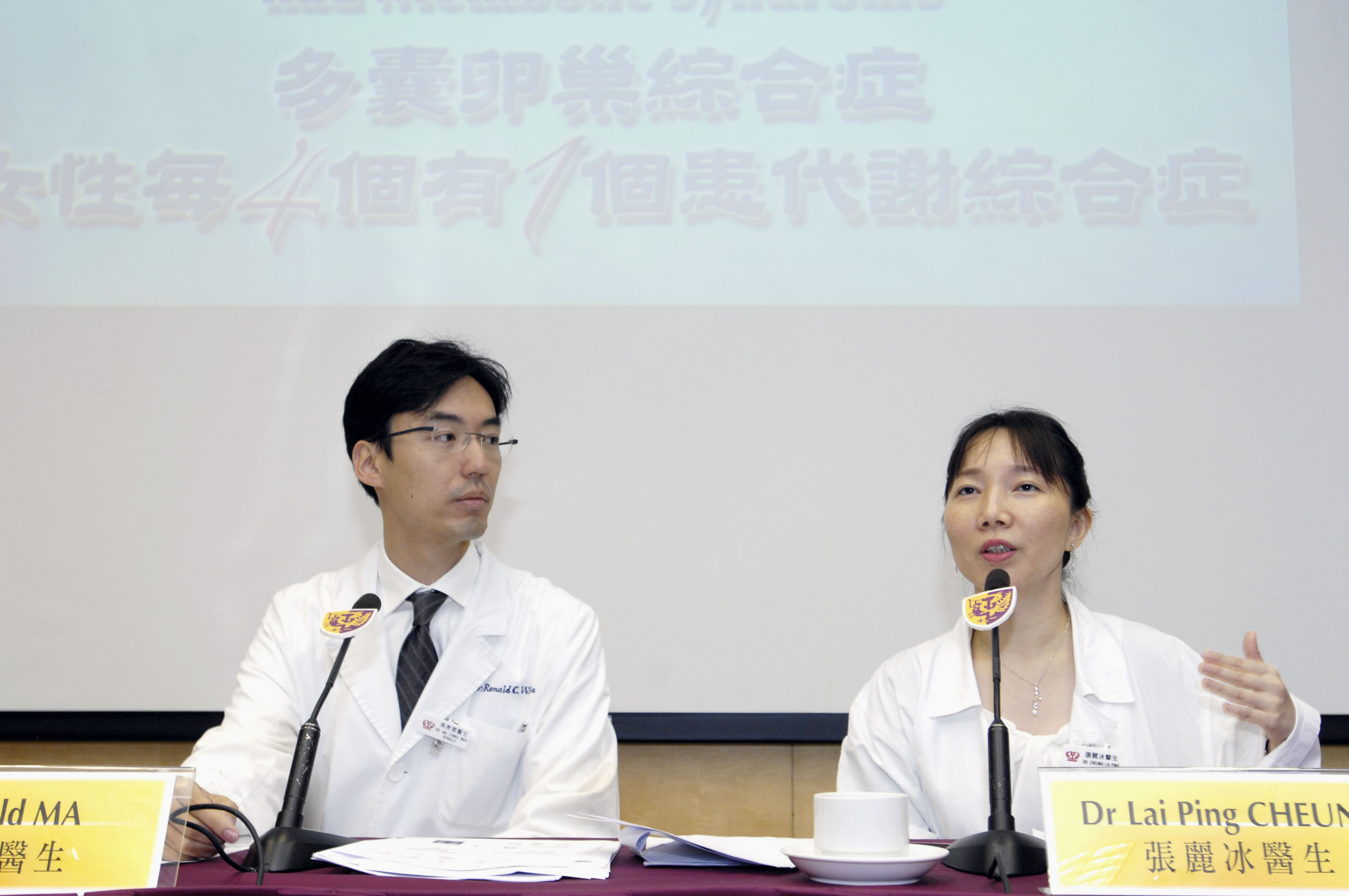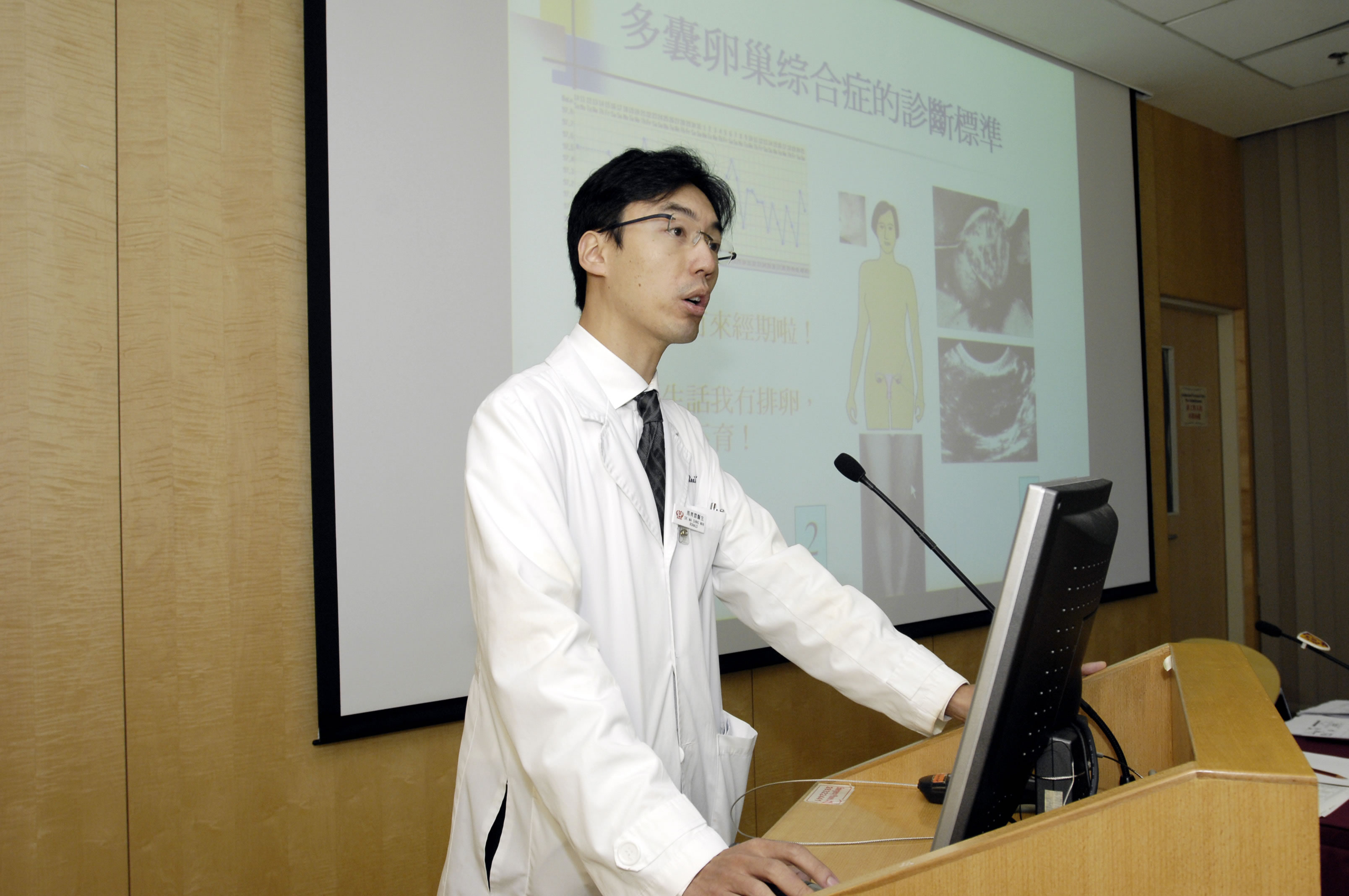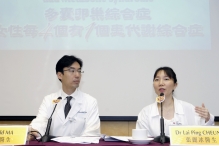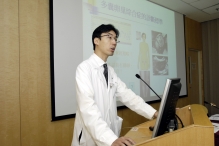CUHK
News Centre
1 in 4 women with Polycystic Ovarian Syndrome has Metabolic Syndrome
Polycystic Ovarian Syndrome (PCOS) is a common gynaecological endocrinopathy affecting 10% of women in the reproductive age group. As what its name suggests, the ovaries of PCOS patients usually have the ultrasound appearance of multiple tiny cysts. Its clinical features include oligo-amenorrhoea, chronic anovulation, infertility, and symptoms of androgen excess such as hirsutism and acne. Elevated androgens mediated through hypersecretion of luteinized hormones or insulin resistance contribute significantly to its underlying pathophysiology. These women usually present to gynaecologists with menstrual irregularities or anovulatory infertility, but emerging evidences suggest that PCOS is not purely a gynaecological disease because of its predisposition to many metabolic risk factors such as hypertension, lipid and glucose abnormalities, which subject them to an increased risk of Metabolic Syndrome (MetS) and the long term risk of developing diabetes and atherosclerotic cardiovascular diseases.
MetS, which consists of a cluster of interrelated metabolic risk factors associated with insulin resistance, is a disease with great public health impact as it confers a 5-fold increase in the risk of diabetes and a 2-fold increase in the risk of cardiovascular diseases. According to the latest ATPIII criteria revised by AHA/NHLBI in 2005, MetS is defined as the presence of at least 3 or more of the following risk factors:
(1) central obesity with waist circumference >80 cm (31.5 inches) in Asian women;
(2) elevated blood pressure >130 / 85 mmHg;
(3) elevated fasting triglycerides (TG) >1.7 mmol/L;
(4) reduced fasting high-density lipoprotein cholesterol (HDL-C) <1.3 mmol/L;
(5) elevated fasting blood glucose >5.6 mmol/L.
The Department of Obstetrics and Gynaecology and the Department of Medicine and Therapeutics of the Faculty of Medicine at The Chinese University of Hong Kong (CUHK) have recently completed a study to evaluate the risk of MetS in Hong Kong Chinese women with PCOS. The study has been initiated since 2003 and a total of 295 PCOS women were evaluated (mean age: 30; body mass index: 25.8 kg/m2). Among these women,
- 53.1% have central obesity;
- 29.4% have elevated blood pressure;
- 53.1% have abnormal blood lipids;
- 32.3% have abnormal blood glucose (including 7.5% of type II diabetes); and
- 24.9% have MetS, and the risk of having MetS is nearly 13-fold higher in those aged <30 (prevalence: 16.7%) and 3 to 4-fold higher in those aged 40-49 (prevalence: 53.3%) when compared with the age-matched population controls.
The study also demonstrated that the presence of PCOS is indeed an independent risk factor for MetS. Women with PCOS were found to have approximately 5-fold increased risk of developing MetS even after adjusting for age and obesity.
The Faculty of Medicine at CUHK suggests women with PCOS to have regular monitoring of blood pressure, blood lipids and glucose to enable early detection of metabolic complications. Preventive measures such as lifestyle intervention comprising weight reduction, dietary modification and increased physical activities may help to reduce their long term health risks of developing diabetes and atherosclerotic cardiovascular diseases.
(Left) Dr Ronald MA, Associate Professor, Department of Medicine and Therapeutics, CUHK; Dr Lai Ping CHEUNG, Honorary Clinical Associate Professor, Department of Obstetrics and Gynaecology, CUHK





